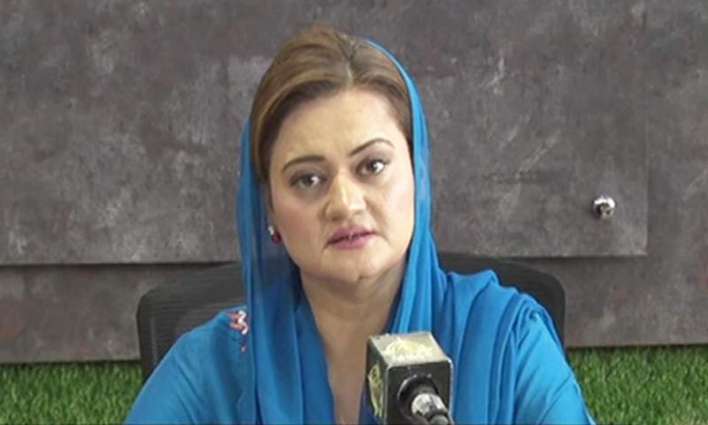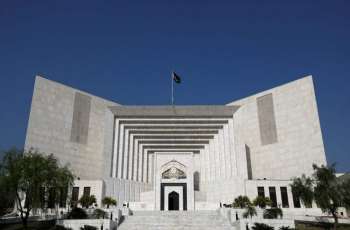Federal Minister for Information and Broadcasting, Marriyum Aurangzeb, claimed that the case had already been dismissed and questioned why a three-member bench, led by the CJP, heard the case.
ISAMABAD: (UrduPoint/Pakistan Point News-April 7th, 2023) The Federal government on Friday called for the resignation of Chief Justice of Pakistan Umar Ata Bandial after a ruling by Supreme Court Judge Justice Athar Minallah.
Federal Minister for Information and Broadcasting, Marriyum Aurangzeb, claimed that the case had already been dismissed and questioned why a three-member bench, led by the CJP, heard the case.
She argued that the violation of the Constitution would not be allowed and raised concerns about the public's acceptance of the decision, given that fellow judges of the CJP were not in agreement. The Minister made these remarks during a press conference in Islamabad. Aurangzeb also highlighted that four judges had recommended the formation of a full court.
Justice Athar Minallah, one of the judges of the Supreme Court of Pakistan, on Friday clarified his position on the dismissal of the Punjab elections case.
The controversy surrounding the Supreme Court's verdict on the Punjab elections had taken a turn after Justice Minallah's detailed order, where he stated that the case was dismissed by a majority of 4 to 3 and that he had not recused himself nor had any reason to dissociate himself from the case.
In his detailed note, Justice Minallah agreed with Justice Syed Mansoor Ali Shah and Justice Jamal Khan Mandokhail's opinion regarding the final outcome of the petitions and the suo motu assumption of jurisdiction.
He emphasized that "public trust and confidence" are sacrosanct for the judiciary to operate effectively, and the legitimacy of the court's verdict depends solely on the public's belief that the Court is an independent, impartial, and apolitical arbiter of disputes.
Justice Minallah further noted that the issue of elections in Punjab and Khyber Pakhtunkhwa was political and was being adjudicated by a high court. He also highlighted the impact of the interpretation of Article 63-A, which disregarded votes and had far-reaching effects on the highly charged and polarized political atmosphere.
The interpretation of Article 63-A had a profound impact on the ensuing events for the polarized political stakeholders. This led to a highly controversial decision by the Supreme Court, which dismissed the petitions against the results of the Punjab elections.
Furthermore, the judge noted that the Supreme Court has remained at the center stage of an unprecedented charged and polarized political milieu since April of last year when the former National Assembly deputy speaker dissolved the lower house.
He also highlighted that Pakistan Tehreek-e-Insaf (PTI) Chairman Imran Khan's decision to leave the National Assembly had profound consequences, and with that decision, President Arif Alvi invoked the Supreme Court's advisory jurisdiction for the interpretation of Article 63-A.
Justice Minallah's clarification provides a more detailed understanding of the decision-making process surrounding the Punjab elections case. It emphasizes the importance of public trust and confidence in the judiciary, especially in highly charged and polarized political environments. The judge's note also highlights the impact of political decisions and their consequences on the functioning of the judiciary.




